Group Members¶
Group Leader¶

PhD (Münster), MSc (Theoretical chemistry), BSc (Chemistry)
Ekaterina I. Izgorodina was educated at the Higher Chemistry College affiliated with the Russian Academy of Sciences and graduated with both a Bachelor of degree in Chemistry and Master of Science degree in Theoretical Chemistry. She obtained her Dr. Rer. Nat. degree in 2004 from the University of Münster under the supervision of Prof. Stefan Grimme. After a post-doctoral position with Prof. Michelle L. Coote at the Australian National University she joined the School of Chemistry at Monash University in 2006 as a Research Fellow in Prof. Douglas R. MacFarlane’s group. From 2008 until 2016 she has held two prestigious fellowships from the Australian Research Council, an Australian Post-Doctoral Fellowship and later a Future Fellowship, that allowed her to establish the Monash Computational Chemistry Group.
In 2017 she was elected a a Fellow of the Royal Australian Chemical Institute (RACI). Her group specialises in the assessment and development of cost-effective quantum chemical methods (both abi initio and DFT) for studying energetics of multi-scale clusters of condensed systems including molecular crystals and ionic liquids. Her research marries these cost-effective methods with molecular dynamics formulation to pave the way towards robust and accurate ab initio molecular dynamics simulations of condensed materials with a view of predicting not only their properties but also kinetic mechanisms of chemical reactions including proton and electron transfer processes. Her passion lies in the understanding of the role of intermolecular forces and structural arrangement on physicochemical properties of condensed systems and the development of new materials for applications in energy devices such as metal-ion batteries, solar and fuel cells, gas capture such as CO2, and pharmaceutical industry. She is a Professor in the School Chemistry at Monash University who strongly contributes to the teaching program through the curriculum development in computational and physical chemistry.
Contact Information
Email: katya.pas@monash.eduResearcher Profile: https://research.monash.edu/en/persons/ekaterina-pas
Phone: +61 3 9905 8639
Address:
School of Chemistry, Monash University
17 Rainforest Walk, Clayton, Victoria 3800
AUSTRALIA
Current Group Members¶
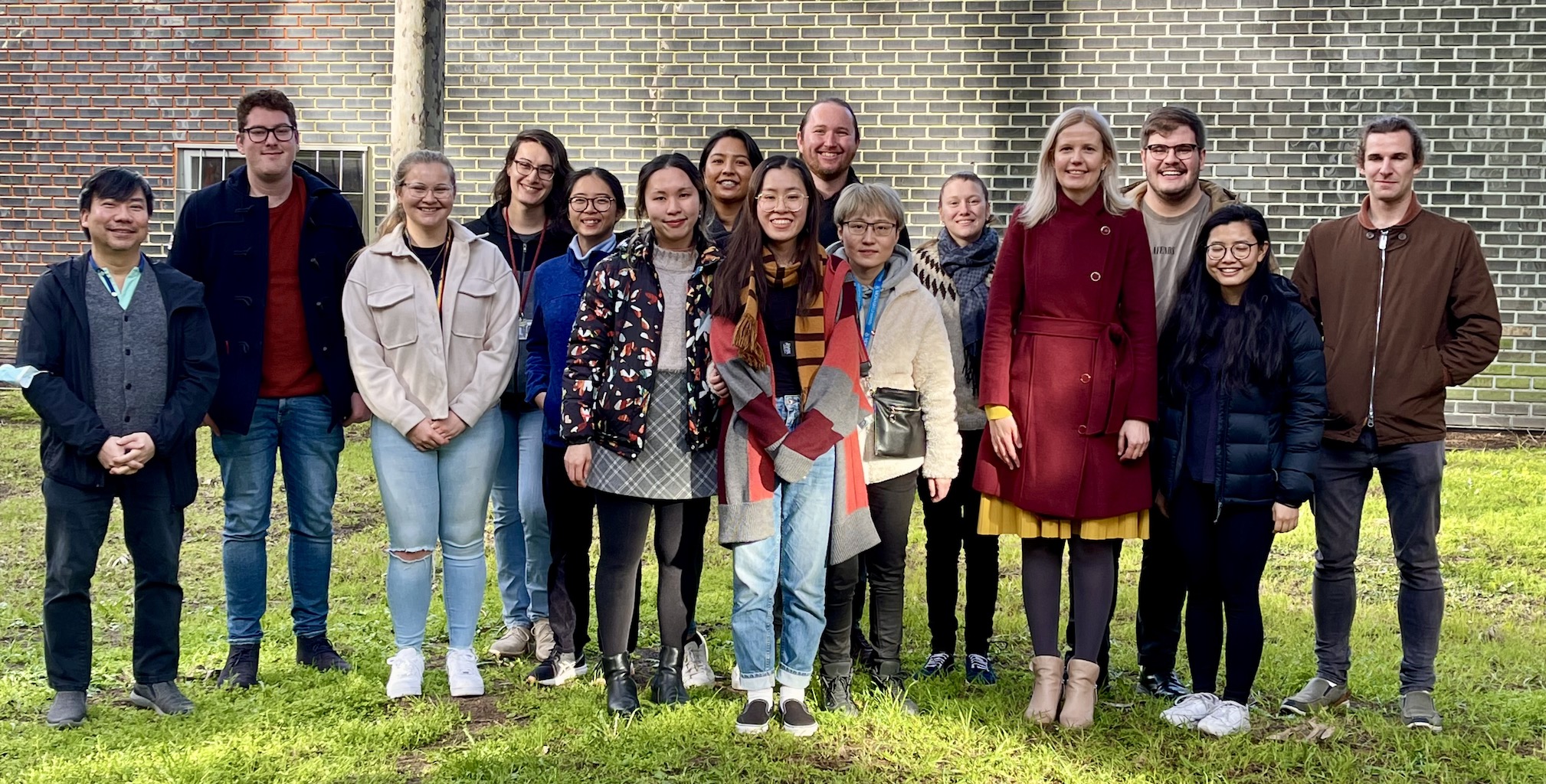
Postdoctoral Researchers¶

BSc Chemistry/Physics (Hons) Monash University
While completing his Bachelor’s degree with majors in chemistry and physics at Monash University, Peter performed research in statistical physics, isotope analysis, quantum fluids, and computational chemistry, publishing in 2017. In 2018, Peter then completed an Honour’s degree in physical chemistry under the joint supervision of Prof Katya Pas and Prof. Doug MacFarlane.
Peter began his PhD in late 2019 as a joint student of the Monash-Warwick Alliance, working with Prof. Katya Pas and Prof. Reinhard Maurer. During his PhD, Peter is using a variety of quantum chemical theories and molecular modelling schemes to analyse ionic liquids, alkali metals, electric fields and their interactions.
Honours Topic: Investigating nitrogen dissolution in fluorinated ionic liquids for nitrogen fixation
PhD Topic: Development and application of theoretical techniques towards large-scale calculations and bulk simulations of ionic liquids
Interests in Science: Quantum effects for applications, molecular interactions, reaction mechanisms, comparing theory to observations
Publications
Mattia Belotti, Xin Lyu, Longkun Xu, Peter Halat, Nadim Darwish, Debbie S. Silvester, Ching Goh, Ekaterina I. Izgorodina, Michelle L. Coote, and Simone Ciampi, Experimental Evidence of Long-Lived Electric Fields of Ionic Liquid Bilayers. Journal of The American Chemical Society, 143, 2021. DOI: 10.1021/jacs.1c06385
Peter Halat, Zoe L. Seeger, Santiago Barrera Acevedo, and Ekaterina I. Izgorodina, Trends in Two- and Three-Body Effects in Multiscale Clusters of Ionic Liquids. Journal of Physical Chemistry B, 121, 2017. DOI: 10.1021/acs.jpcb.6b10101

BSc Adv-Research Chemistry (Hons) Monash University
Sophie began studying her Bachelor of Science Advanced - Resarch (Hons) degree (Extended Major in Chemistry and a minor in Mathematics) at Monash University in 2017. Here, she gained a wealth of leadership experience in roles as an Event Manager for the Science Peer Mentoring program, Science Student Ambassador and Student Representative on the Science Board of Studies and Undergraduate Learning and Teaching Committee.
In 2018, Sophie began her first research project with Dr. Brett Paterson. This work involved the synthesis of a novel silver(I) coordination polymer, and was recently published in 2022. In 2019, Sophie was also selected to perform research into the synthesis of rare earth hydrides with Prof. Holger Kohlmann at Leipzig University, Germany. She then first embarked on her computational chemistry journey, undertaking a research project with Prof. Ekaterina Pas. Sophie was also a graduate of the 2019/20 PPG Summer Internship Program where she worked as a Technical Intern in the Coil Coatings sector.
In 2020, Sophie completed her Honours year under the supervision of Prof. Ekaterina Pas. She used density functional theory to investigate the redox mechanism of polydopamine in a variety of neutral and ionic media, which earned her an overall mark of 87.
Sophie began her PhD in the Monash Computational Chemistry Group in 2021, under the joint supervision of Prof. Ekaterina Pas, Prof. Andrea Robinson and Prof. Benny Freeman (University of Texas). Her current research involves analysising the aggregation properties and polyermisation mechanism of polydopamine in ionic liquids, and investigating the ability of deep eutectic solvents to act as phase change materials.
Publications
Sophie A. Crouch, Patrick R.W.J. Davey, Craig M. Forsyth, Stuart R. Batten and Brett M. Paterson, A silver(I) coordination polymer with bridging bis(thiosemicarbazone) ligands and unsupported argentophilic interactions. Journal of Coordination Chemistry, 75:11-14, 1691-1701, 2022. DOI: 10.1080/00958972.2022.2092845
PhD Students¶
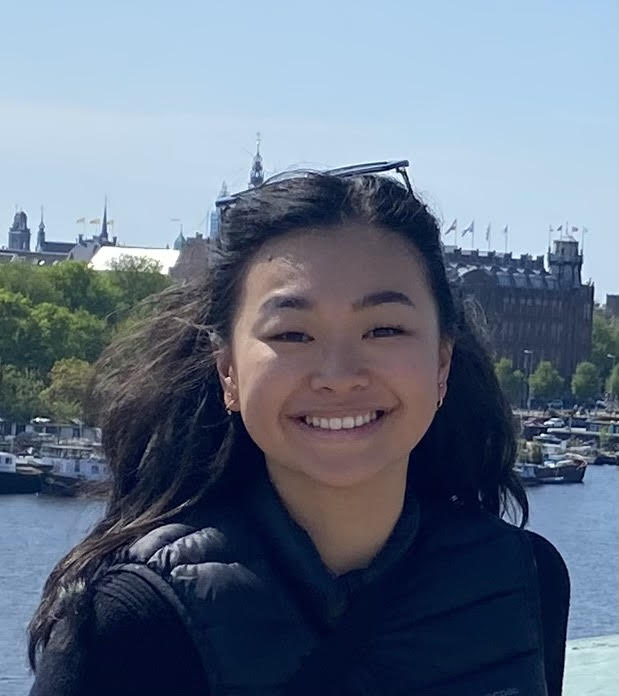 BSc Chemistry (Hons) Monash University
BSc Chemistry (Hons) Monash University
Elizabeth completed her Bachelor of Science (Hons) in Chemistry at Monash University with First Class Honours. Her honours research year focussed on the synthesis of peptide-based bioelastomeric mimetics via ALTMET polymerisation, combining organic and peptide synthesis, and catalysis chemistry, under the supervision of Prof. Andrea Robinson. Previously, she also completed an undergraduate research project on the synthesis, testing and docking of small analgesic analogues on biological systems, under the supervision of Prof. Kellie Tuck. Alongside her bachelor studies, Elizabeth also worked for various analytical, synthetic and R&D laboratories spanning from agricultural, paints and coatings, pharmaceutical and environmental industries.
Elizabeth began her PhD under the joint supervision of Prof. Andrea Robinson and Prof. Katya Pas, sparking her interest in peptide chemistry, pharmacology and machine learning. Her current research focuses on synthesising and testing of peptide-ligands towards plasma proteins, in combination with machine learning to predict their binding affinities. This project is also in collaboration with industry partner CSL Behring.

Bachelor of Materials Engineering and Chemistry (Hons Engineering) (Hons Chemistry) Monash University
Caleb completed studies in his Bachelor of Materials Engineering and Science (Extended major in Chemistry) at Monash University. Previous research projects involved investigating the cytotoxic effects of zinc oxide nanoparticles under Prof. Terry Turney (2019).
Caleb has been undertaking research in MCCG since 2021, completing his honours year in 2022 and commencing his PhD in 2023. His work prior to PhD has involved investigations of organic molecules as electrolytes, and establishing methods to reliably extract dynamic properties from molecular dynamic simulations. His PhD focus is continuing in this theme, establishing methodology to simulatively replicate physical phenomenon observed in solutions and/or chemical reactions subjected to electric fields.

BSc Chemistry (Hons) University of Jaffna
Raveena received her BSc Honours degree in Chemistry from the University of Jaffna, Sri Lanka. She graduated with First Class Honours, winning three gold medals for best performance in 2020. Her research journey commenced with the honours project investigating defects, diffusion and dopants in the mineral Sillimanite using a computational approach.
Due to her excellent academic performance, she got a chance for a fully funded exchange student program at the University of Agder, Norway in 2021. There she worked on the deuterium exchange reaction of calcium oxalate monohydrate using infrared spectroscopy under the supervision of Professor Alfred A. Christy.
She enjoyed teaching at the Department of Chemistry, University of Jaffna before starting her PhD in Monash Computational Chemistry group in May 2023. Her PhD project focuses on designing redox-active material for electrochemical applications.

B.S. Computer Science (Turing Scholars Hons) & B.S. Mathematics, University of Texas at Austin
Physics Claire Kluber commenced studies at the University of Texas at Austin starting in 2018. Prior, she obtained a breadth in first/second-year STEM education through dual-enrollment and Advanced Placement (AP) coursework, obtaining top marks in over a dozen AP exams. This empowered her to dive into research straight-away in university, starting with honors courses and projects through the Turing Scholars program, and then with a FRI fellowship in 2019 focusing on applying machine learning to geometry optimization for catalyst discovery in ORR/HER. Subsequently, she worked on further research projects through TIDES, the UT Mathematics DRP, and various graduate units, studying physical simulation, quantum physics theory, and general scientific computing. In 2023, Physics completed her honors thesis titled CUDA Multipole Barnes-Hut and was awarded with a CNS Research Distinction.
Thesis Title: Combining the Many-body Expansion Approach with Machine Learning to Study Molecular Crystals
Research Interests: Crystal structure prediction, machine learning, scientific computing, GPU programming, and quantum computing
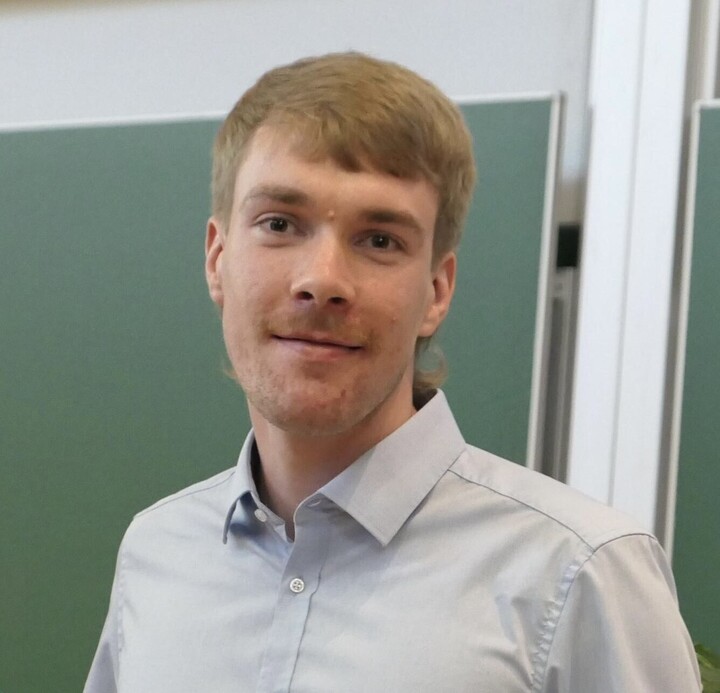
MSc (Chemistry), BSc (Chemistry), Leipzig University
Renke completed his Bachelor and Master of Science in chemistry at Leipzig University, focusing on bioanalytical chemistry, organic synthesis and biochemistry. His first cooperation with the MCCG was during his master thesis, where he performed molecular dynamics simulations to study the behavior of proline-rich antimicrobial peptides in their binding site in the bacterial ribosome. This cooperation then resulted in the Leipzig and Monash joint award PhD candidature, in which he uses molecular dynamics and in vitro methods to design and test new proline-rich antimicrobial peptides against multi-resistant bacteria.
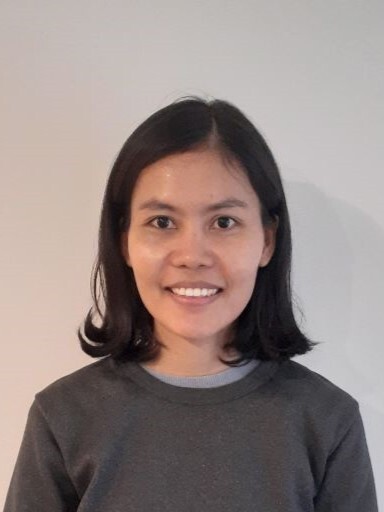
MSc (Nutraceuticals and Functional Foods), BPharm
Sandar Naing obtained her bachelor’s degree from the University of Pharmacy (Yangon), Myanmar, in 2009. Following her graduation, she worked in various pharmacy sectors, including hospital, industrial, and community settings in Myanmar. In 2020, she advanced her education by pursuing Master of Science in Nutraceuticals and Functional Foods at Mahidol University, Thailand. Her research focused on the in silico and in vitro evaluation of natural bioactive compounds for their anticancer properties, sparking her interest in computational techniques for discovering active compounds. This led to her being awarded a Joint PhD scholarship (Monash-Leipzig) in 2024 for a project on designing antimicrobial peptides using machine learning, under the supervision of Professor Katya Pas (Monash) and Professor Ralf Hoffmann (Leipzig).
Past Group Members¶
2024¶

BSc Chemistry (Hons) Monash University
Nicole’s academic journey began with a B.Sc. (Hons. First Class) in Computational Chemistry from Monash University. During her studies, she demonstrated a flair for combining traditional chemistry principles with advanced computational techniques.
Her work as a PhD candidate has led to the engineering of Deep Neural Networks (DNN) models to predict chemical reactions, processing over 5 million electron densities across 50 molecules. Nicole’s innovative approach to unsupervised clustering strategies using UMAP and chemical descriptors has extracted unique features from over 7,000 molecules, driving predictions of atomisation, reaction and interaction energies.
Her expertise in designing DNN and clustering models, coupled with her proficiency in Python, R, and Bash scripting, positions her at the forefront of the intersection between Chemistry and Machine Learning.
Outside of her professional pursuits, Nicole is actively engaged in language learning, pursuing Japanese and Korean language proficiency, and has been recognized for outstanding engagement and knowledge sharing at the ANU Kioloa Campus Summer Camp in 2018.
Publications
Zhifang Guo, Nicole Wang, Victoria L. Blair, Ekaterina I. Izgorodina, Glen B. Deacon, Peter C. Junk, Facile synthesis and structures of silver formamidinates and pyrazolates. Australian Journal of Chemistry, 75, 2022. DOI: 10.1071/CH21282
2023¶

BSc Chemistry (Hons) Australian National University
Michael graduated with a Bachelor’s degree majoring in Chemistry and Biochemistry from the Australian National University in 2017. Michael completed an Honours project investigating the quaternary structure of terminal non-ribosomal peptide synthetases as part of his Bachelor’s degree. Michael started his PhD in the Pas group in April 2019, focusing on combining Molecular Dynamics and ab initio calculations to investigate bioactive peptides, in particular insulin analogues and proline-rich antimicrobial peptides.
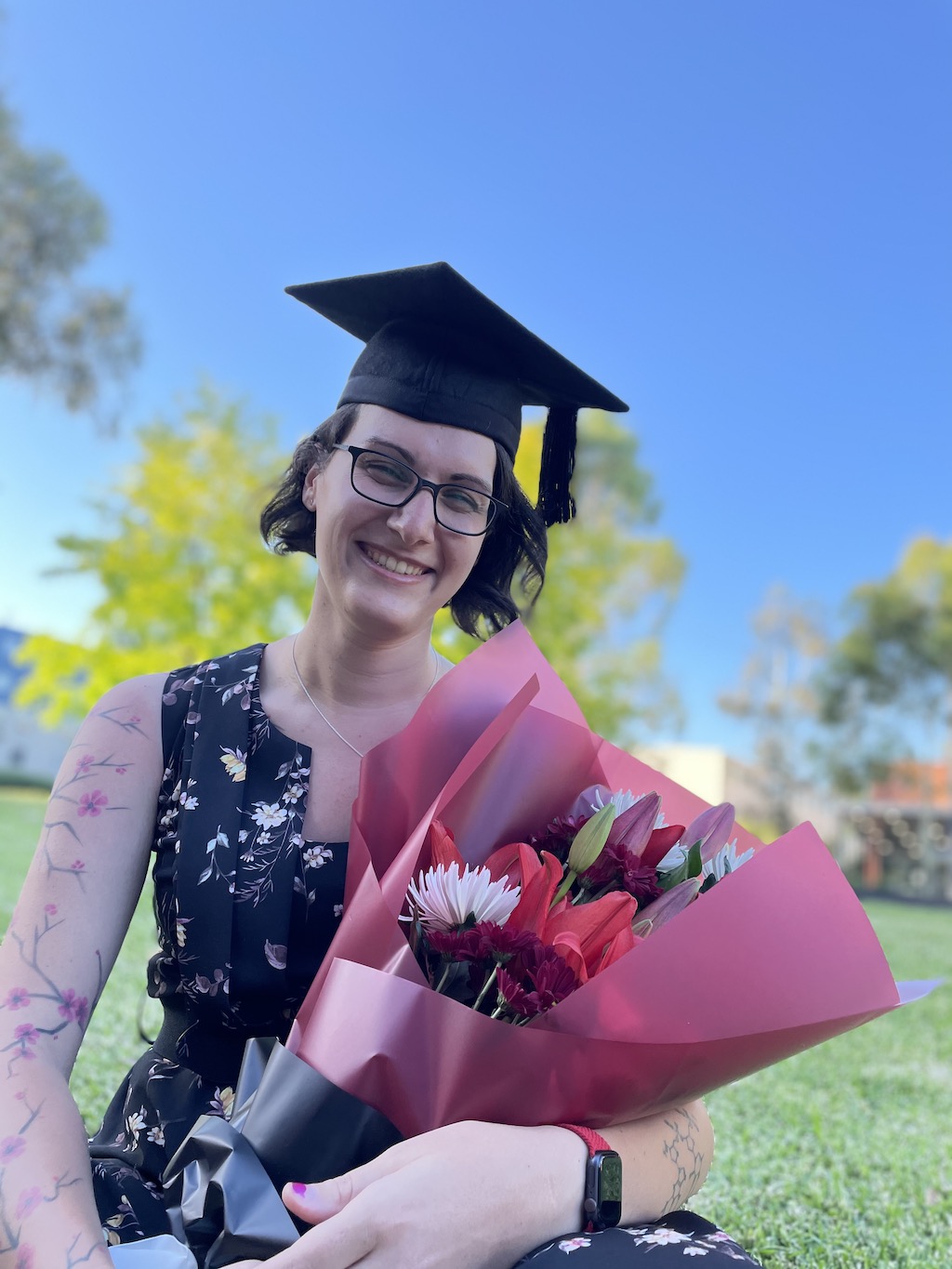
BSc Chemistry Swinburne University, BsC Chemistry (Hons) Monash University
Having fulfilled successful career goals in visual effects for film and television, and in patisserie, Adrea’s curiosity for molecular gastronomy and thirst for a deeper knowledge encouraged her to undertake a BsC, majoring in chemistry at Swinburne University in 2017. During this time, she undertook research internships in the labs of Prof. Steven Langford, and Dr. François Malherbe.
In 2020 Adrea undertook a research internship under Prof. Katya Pas, during which time she investigated the nature of catalysis in ionic liquids in comparison with transition metals, utilising energy decomposition techniques.
Upon graduating from Swinburne, in 2021 Adrea moved to Monash university where she resumed her work with Prof. Pas through her honours year. In this time she performed extensive investigation into the stereoselective electrostatic catalysis of an intramolecular aza-Michael cyclisation, and the effects of solvation on the catalytic potential, for which Adrea graduated with First Class Honours Division A.
Adrea continued her research as a PhD in the Pas research group, working to resolve the current limitations of implicit solvation models for excited state calculations.
Contact Information
WebsiteGithub
2022¶
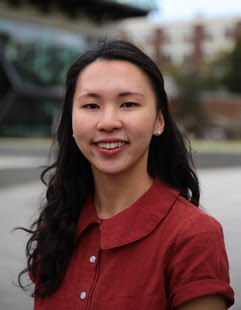
BSc Chemistry (Hons) Monash University
Kaycee Low completed a Bachelor of Science (Hons) in 2017 at Monash University, focusing on the kinetics of radical polymerisation in ionic liquids solvents. In 2019 she was awarded the Monash Graduate Excellence Scholarship to commence her PhD at Monash University, under the supervision of A/Prof Katya Pas and Prof. Evamarie Hey-Hawkins (Leipzig University).
Her interests lie in the exploration of chemical space of drug-like molecules using computational chemistry and predictive modelling techniques. Her PhD project consists of data mining and machine learning techniques to develop quantitative structure-activity relationships between newly developed drug molecule structures and a variety of biological targets.
Publications
K. Low, S. Y. S. Tan and E. I. Izgorodina, Frontiers Chemistry, ‘An Ab Initio Study of the Structure and Energetics of Hydrogen Bonding in Ionic Liquids’.
K. Low, L. Wylie, D. L. A. Scarborough, and E. I. Izgorodina, Is it possible to control kinetic rates of radical polymerisation in ionic liquids? BACK COVER, Chem. Commun., 2018, 10.1039/C8CC02012D.

Zoe Seeger is currently a senior PhD student in the Monash Computational Chemistry Group (MCCG). Over the course of her Bachelor’s degree, she obtained two summer research scholarships in 2013 and 2014, where she worked under the supervision of Dr. Andy Ohlin and Dr. Rico Tabor. She then went on to pursue her Honour’s degree with Dr. Ekaterina Pas in 2015, with a primary focus on predicting physical properties of ionic liquids using wavefunction-based methods. In 2018, she received an Erasmus+ research scholarship from the University of Leipzig, Germany to collaborate with Prof. E. Hey-Hawkins & Dr. Stefan Zahn. Her computational interests revolve around understanding the fundamental forces in large-scale systems alongside applications of the fragment molecular orbital (FMO) approach. She currently has ongoing collaborations with Dr. Amber Hancock of Bennington College, Prof. Cameron Jones of Monash University and Dr. Amir Karton from University of Western Australia.
Publications
Zoe L. Seeger, Rika Kobayashi and Ekaterina I. Izgorodina, Cluster approach to the prediction of thermodynamic and transport properties of ionic liquids. The Journal of Chemical Physics, 148, 2018. DOI 10.1063/1.5009791
Peter Halat, Zoe L. Seeger, Santiago Barrera Acevedo, and Ekaterina I. Izgorodina, Trends in Two- and Three-Body Effects in Multiscale Clusters of Ionic Liquids. Journal of Physical Chemistry B, 121, 2017. DOI 10.1021/acs.jpcb.6b10101
Ekaterina I. Izgorodina, Zoe L. Seeger, David L. A. Scarborough, and Samuel Y. S. Tan, Quantum Chemical Methods for the Prediction of Energetic, Physical, and Spectroscopic Properties of Ionic Liquids. Chemical Reviews, 117, 2017. DOI 10.1021/acs.chemrev.6b00528
Calum S. Butler, Zoe L. Seeger, Toby D. M. Bell, Alexis I. Bishop and Rico F. Tabor, Local determination of thin liquid film profiles using colour interferometry. The European Physical Journal E, 39, 2016. DOI 10.1140/epje/i2016-16014-9
David D. Tan, Sean S. Han, Scott A. Young, Zoe L. Seeger, Matthew J. Pottage, Christopher J. Garvey, Rico F. Tabor, and Brendan L. Wilkinson, Reversible pH- and Photo-controllable Carbohydrate-based Surfactants. Chemistry – A European Journal, 2014. DOI 10.1002/chem.201404945

MSc Chemistry Warwick University
Tom started his PhD in the Pas group in November 2018 after completing his Master’s degree at the University of Warwick in the UK. His research was performed under the supervision of Prof. Dr. Stefan Bon and focused on the creation of dynamic polymers by modification of low molecular weight telechelic polymers with functionality to induce hydrogen bonding. During his studies, Tom spent time in the School of Chemistry at Monash studying the effect of water on ionic liquids used to solvate proteins, gaining knowledge of computational chemistry in the process.
Tom’s PhD project focuses on the improvement of current empirical models for the prediction of water and ion transport in polymer membranes. His project is co-supervised by Prof. Benny Freeman at the University of Texas at Austin. Tom is combining Molecular Dynamics simulations with *ab initio*calculations in order to gain understanding on a molecular level and improve predictions currently made from experimental data.

BSc (Chemistry) & BComm (Finance), BSc (Honours in Chemistry) Monash University
In 2016, Fairuz Hashim obtained two Bachelor’s degrees in Science and Commerce. Over the course of her Bachelor’s degrees, she was awarded the Monash International Scholarship for Excellence based on academic merit. On completion of her Bachelor’s degrees, she went on to pursue her Honour’s degree with the MCCG where she obtained the top score of 89 in her cohort. Her honour’s project focused on the application of protic ionic liquids for carbon capture.
At the end of 2017, Fairuz was awarded two scholarships, the Monash Graduate Scholarship and Monash International Postgraduate Research Scholarship to pursue her PhD. Her PhD research focuses on developing a solvation model for large-scale ab-initio calculations with an emphasis on solvation thermodynamics. She has previously collaborated with Dr Victoria Blair of Monash University and is currently in collaboration with Dr Alister Page of The University of Newcastle.
Publications
Stevens, M. A., Hashim, F. H., Gwee, E. S., Izgorodina, E. I., Mulvey, R. E. and Blair, V. L. (2018), Contrasting Synergistic Heterobimetallic (Na–Mg) and Homometallic (Na or Mg) Bases in Metallation Reactions of Dialkylphenylphosphines and Dialkylanilines: Lateral versus Ring Selectivities. Chem. Eur. J.. . doi:10.1002/chem.201803477
2021¶

MSc (Chemistry), Aachen University
After graduating with excellency from the Le Hong Phong High School for theGifted in Vietnam, Anh enrolledin the Bachelor’s course in chemistry at the Rheinisch-Westfälische Technische Hochschule (RWTH) Aachen University in Germany. During her studies, she engaged in voluntary research in the field of photoredox-catalysed synthesis under the supervision of Prof. Magnus Rueping.
Anh completed her Bachelor’s thesis in inorganic chemistry, specifically on the functionalisation of polyoxovanadates, in the group of Prof. Paul Kögerler. She then continued with her Master’s studies at the RWTH Aachen and further specialised in catalysis, computational chemistry and spectroscopy. During these studies, she acquired a deeper knowledge of computational chemistry through research internships with Prof Richard Dronskowski on solid-state materials and Prof. Franziska Schoenebeck on the mechanisms of organometallic reactions.
Anh then transferred for her Master’s thesis to Monash University to investigate molecular crystals under the supervision of A/Prof. Katya Pas. Her research allowed the correct prediction of the lattice energies of benzene and aspirin crystals structures by employing a combination of the Fragment Molecular Orbital (FMO) approach and the spin-ratio scaled second-order Møller-Plesset perturbation (SRS-MP2) method, which was developed in the Pas group. After completing her Master’s of Science degree with the grade of “Very good” for the research project, Anh continues to delve into weak intermolecular interactions in molecular crystals and optimise the self-consistent field algorithm towards a better and faster prediction of electronic energies.

BSc Adv-Research Chemistry (Hons) Monash University
In 2016 Nathan commenced his Advanced Science (Research) degree at Monash Clayton, and completed his bachelors course with an extended major in chemistry and minor in mathematics in 2018. Throughout his undergraduate degree Nathan has participated in research projects spanning the analytical, environmental, synthetic inorganic, physical and theoretical branches of chemistry, having worked with A/Prof. Michael Grace at Monash, Dr Kornelia Zeckert at the University of Leipzig, Germany and within the MCCG under the supervision of A/Prof Katya Pas.
His interests in chemistry lie within the realms of inorganic and theoretical/computational chemistry and his passion is to integrate computational strategies and the fundamental knowledge that quantum computational chemistry provides, with experimental results to assist in the understanding and development of new and novel processes, materials and reactions.
In 2019, Nathan commenced his Honours degree with the MCCG under the supervision of A/Prof Katya Pas and is studying the interactions of ionic liquids with internal and external electric fields with a particular focus on using them to facilitate common organic reactions.

BSc Chemistry (Hons) University of Delhi
Abhi obtained his BSc degree in Chemistry (Hons.) in 2013 from University of Delhi, India. He received his M.Sc. in 2015 from V. National Institute of Technology, Nagpur where he worked on “Aqueous-phase hydrogenation of phenolic compounds over Ni-ZSM-5 catalyst and performed related kinetic studies” during his master’s thesis under the supervision of Prof. J.D. Ekhe. Abhi is currently pursuing a PhD with Monash University (Australia) and IIT Bombay (India).
His research interest are multidisciplinary in nature and lies at the interface of Physical and Organic chemistry. I am interested in harnessing Nature’s chemical principles and logic to design and understand efficient, sustainable and multifunctional molecules by using a variety of approaches. Very first approach lies in the understanding of intermolecular interactions at a fundamental level by designing new molecules of higher order tertiary structures and investigating them experimentally and computationally. The second approach of his work lies in understanding the chemistry of existing multifunctional polymers such as polyphenylene oxide and polydopamine. He is currently working towards a better understanding of phenol radical polymerisation reactions and development of methods for producing polyphenylene oxide.
2020¶
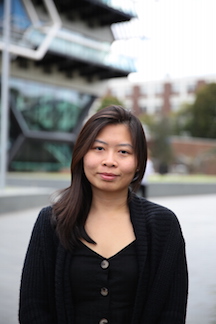
BSc Chemistry (Hons) University of Queensland
Eunice pursued her Bachelor’s and Honour’s Degree at The University of Queensland. She completed her Honours degree in 2015, where her project primarily focused on understanding the interaction and energetics of a phosphate ion, which mimics the bis(pNPP) substrate, with the active site of an enzyme found in Mycobacterium tuberculosis.
Eunice was awarded the Dean’s Scholarship from Monash University in 2016 to study the interaction of Platinum-based anti-cancer drugs with DNA under the supervision of A/Prof Katya Pas. Her PhD project consists of computational and experimental approaches involving the use of Far Infrared Spectroscopy. Her computational interests consist of understanding intermolecular interactions in biological systems as well as explaining discrepancies between experimental and theoretical determined infrared spectroscopy. She currently has ongoing collaborations with Dr. Tamar Greaves from the Royal Melbourne Institute of Technology.
Publications
Puntharod, R., Haller, K. J., Robertson, E., Gwee, E. S. H., Izgorodina, E. I., & Wood, B. R. (2017). An improved model for malaria pigment and β-hematin: Fe(OEP)picrate. Journal of Raman Spectroscopy, 48(9), 1148-1157. DOI: 10.1002/jrs.5176
Stevens, M. A., Hashim, F. H., Gwee, E. S., Izgorodina, E. I., Mulvey, R. E. and Blair, V. L. (2018), Contrasting Synergistic Heterobimetallic (Na–Mg) and Homometallic (Na or Mg) Bases in Metallation Reactions of Dialkylphenylphosphines and Dialkylanilines: Lateral versus Ring Selectivities. Chem. Eur. J.. . doi:10.1002/chem.201803477
BSc Biochmistry/Chemistry (Hons) Monash University
 Luke Wylie obtained his Bachelor’s degree with a double major in biochemistry and chemistry. He completed his Honour’s degree in 2016 and achieved the Top Student Award with a score of 90. His honour’s project focused on understanding the interactions and reactivity of ionic liquids with carbon-based radicals.
Luke Wylie obtained his Bachelor’s degree with a double major in biochemistry and chemistry. He completed his Honour’s degree in 2016 and achieved the Top Student Award with a score of 90. His honour’s project focused on understanding the interactions and reactivity of ionic liquids with carbon-based radicals.
On completion of his Honour’s degree, Luke was awarded an Australian Postgraduate Award (APA) scholarship to investigate the impact of ionic liquids on radicals under the supervision of A/Prof Katya Pas. His current PhD project entails studying the feasibility of using ionic liquids in combination with radicals as organic radical batteries. He has had previous collaborations with Dr Amber Hancock of Bennington College and Prof Masahiro Yoshizawa-Fujita of Sophia University, Japan. In 2018, Luke was awarded the Science-Engineering PhD Mobility Scheme to Waseda University to analyse nitroxide radical electrodes in ionic liquids with Prof Hiroyuki Nishide and Prof Kenichi Oyaizu.
Publications
S. Y. S. Tan, L. Wylie, I. Begic, D. Tran, E. I. Izgorodina, Phys. Chem. Chem. Phys, 19(42), 28936-28942.K. Low, L. Wylie, D. L. A. Scarborough, E. I. Izgorodina, Chem. Comm, 2018, 54, 11226 – 11243.
Pre 2020¶
Dr Su Chen, PhD 2018
Dr Samuel Tan, PhD 2017
Dr David Scarborough, PhD 2016
Dr Jason Rigby, PhD 2015